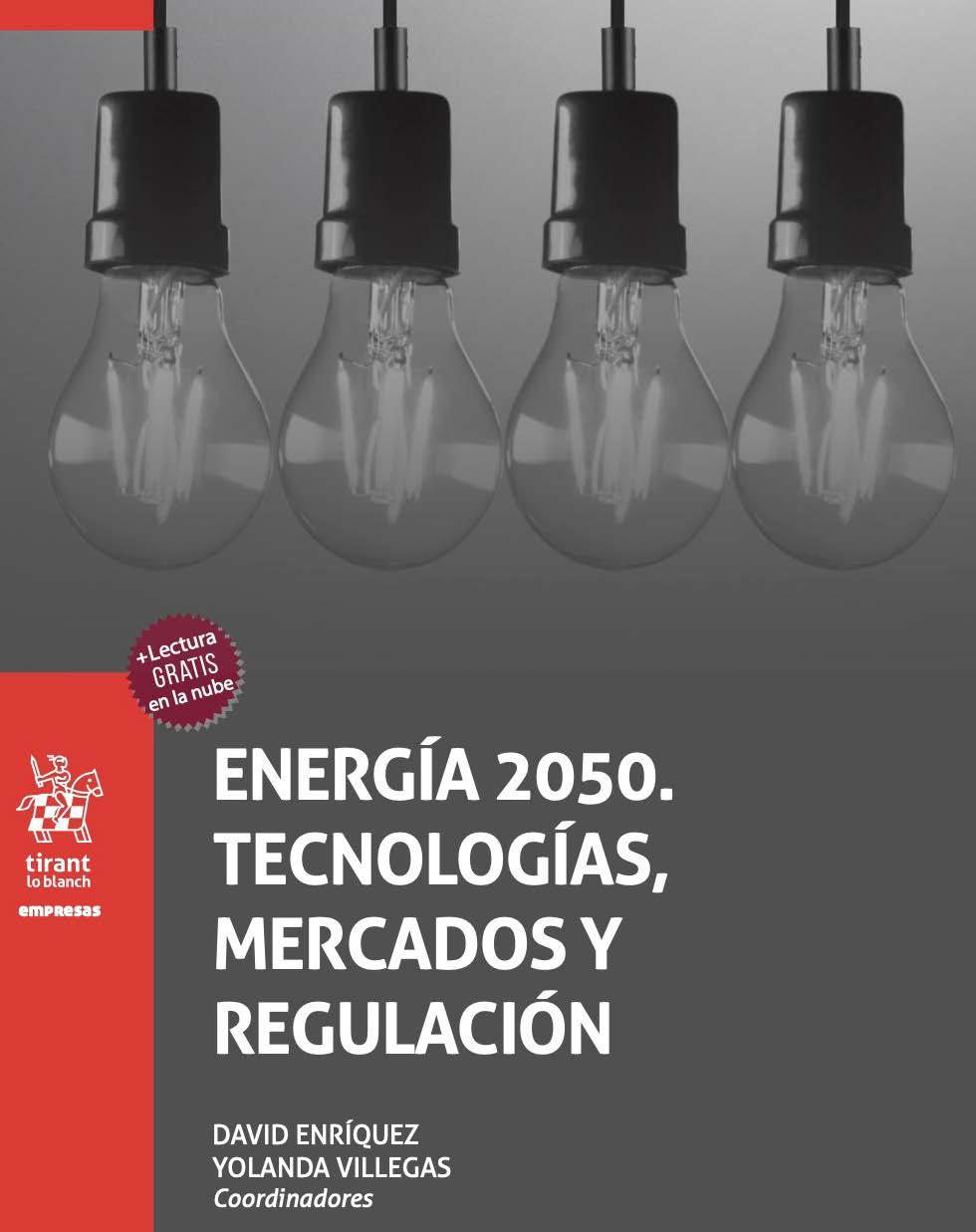COMPANY REPORT







Although the year 2050 might seem a long way away, the time needed to act and contain climate change will soon expire. The energy transition cannot be achieved overnight; on the contrary, it requires long-term strategies to enforce decisive actions.
The book, Energía 2050: Tecnologías, Mercados y Regulación (Energy 2050: Technologies, Markets and Regulation), brings together a group of inspired scholars from Mexico and Latin America responding to the urgent need to promote the climate and decarbonization agenda and undertake a joint effort to promote discussions on pressing energy issues. These authors aim to collaborate in the design and implementation of a successful energy transition for the region.
“The first concern that guided us toward the elaboration of this book was to question the significance of reaching zero emissions by 2050. Achieving decarbonization means many things,” said David Enríquez, Partner at Goodrich, Riquelme y Asociados and coordinator and co-author of the book.
Added Yolanda Villegas, Founding Partner at Oleum and also a coordinator and co-author of the publication: “Through this book, we want to awaken the interest of decision-makers in the energy sector to encourage reflection and action to accelerate Mexico’s energy transition.”
Enríquez told Mexico Business News (MBN) that Energy 2050 is a result of studying Mexico’s energy transition as well as the

main challenges the country faces. “Our goal is to find options regarding the actions we must take today to achieve the complete decarbonization of the national economy by 2050.”
The book focuses not only on renewable sources but also on future technologies and various transition options that can be tailored to a country’s needs. “We want to contribute to this titanic task of regional cooperation and collaboration that is necessary to drive the energy transition,” said Villegas.
Energy 2050 aims to promote awareness about technological, economic, political and regulatory challenges that must be overcome to promote a sustainable and profitable strategy for Mexico. It also targets the new generations, who Villegas says are vital to the conversation. “We seek to connect with the new generations and awaken their interest to generate cleaner and more sustainable energy. It is crucial to involve them in technical and political debates around this energy transition, because today’s decisions will impact tomorrow’s future,” she said.
Publications like Energy 2050 represent valuable academic efforts that promote relevant public agenda issues through critical analysis and verified scientific evidence. Mexico’s recent energy policies and the urgency to prioritize the fight against climate change were among the drivers behind the project. “By going against the tide, the current administration has stoked the debate, allowing the energy issue to rise to the top of the public agenda, increasing interest among a wider audience,” said Villegas.
Guillermo García Alcocer, former President Commissioner of Mexico’s Energy Regulatory Commission (CRE), said the timing of the book’s publication could not be better. “This is the best time to publish this book,” he said. “We are on time to reflect, plan and take action to consolidate Mexico’s energy transition toward 2050.”
For decades, global economic growth, sustained by the consumption of carbon-intensive resources, has increased climate risks, especially those affecting climate change. The threat of global temperatures rising above 2°C is rapidly increasing and the lack of action to counteract this trend has become a priority on national and international agendas.
“Energy is the vital source that sustains most of our activities. It plays a decisive role in the development of modern life,” said Isabelle Rousseau, research-professor at El Colegio de México (COLMEX). Almost everything in daily life requires an energy input, from cooking and heating homes to education, communication, entertainment and transportation.
In Mexico, as in the rest of the world, one-third of greenhouse gas emissions come from power production. This has focused attention on the energy transition as a major goal in efforts to combat climate change. Through decarbonization, countries and corporations seek to transform economic dynamics to reduce these emissions in the coming decades and solve the threatening effects of global warming.
The current state of energy inputs and generation is a result of industrial revolutions over time. These revolutions have relied on the transformation of fossil fuels into efficient and accessible energy sources. First came coal, then oil, and more recently
natural gas. Today, emerging economic and social needs are pushing the creation of low-carbon energy systems.
“As fossil fuel prices rise, alternative technologies that once seemed expensive become more economically attractive. This is the trend that renewable energies are following,” explained García Alcocer. In addition to improved economic feasibility, the climate agenda in favor of decarbonization is promoting these alternative energy sources as the basis for new economic dynamics that are more sustainable, both for the environment and for societies.
Under these circumstances, there is a strong push within the public and private sectors to adopt ambitious goals to achieve net-zero carbon by 2050. This commitment, adopted by companies and governments, began in 2015 with the Paris Agreement, which set clear and challenging decarbonization goals through the energy transition.
Yet, consolidating ambitious energy transition goals by 2050 represents major challenges. The transformation of the economic dynamics underpinning the current energy model cannot change overnight. Therefore, the transition of the energy matrix toward clean sources must be gradual and progressive.
To achieve this transition, countries need to diversify their energy matrices by promoting less dependence on fossil fuels and a higher percentage of power production through clean sources. In recent years, different technologies have consolidated, allowing the generation of clean, reliable and accessible energy from multiple sources. However, one of the main hurdles is obtaining the financing needed to introduce large investments in the technology and infrastructure required to transform the energy matrix and achieve decarbonization.
The Case of Mexico
Mexico is among the countries with the greatest availability of renewable resources, creating great opportunities in clean power production alternatives. Nevertheless, recent energy policies have strengthened the use of fossil fuels over cleaner alternative energies. This has slowed the progression of the national energy transition compared to the results of other relevant emerging economies.
“The expansion of renewable power production capacity together with transition fuels, requires political and legal certainty. In the end, these conditions are what encourages investments needed to drive a successful energy transition,” Marco Biersinger, Director of Oil and Gas Corporate Finance at Kroll, told MBN.
Paúl Sánchez, Business Director at OLEUM, told MBN there is an urgent need to prioritize the energy transition within the government’s public agenda. “If we do not start focusing on accelerating our energy transition, we run the risk of falling behind as a country in the development and implementation of new energy technologies that will provide great competitive advantages in the future toward net zero.”
Moreover, the energy transition represents an opportunity for business and social development. For instance, access to clean, reliable, and affordable energy is essential for competitive businesses. By having more competitive companies, additional
Read the complete article
More about this topic
employment is created, leading to further positive social impact and economic growth.
“The energy transition toward renewable sources involves costs; however, the benefits they bring to the economy and well-being for populations are greater than these costs, making it worth the investment in decarbonization,” Osmar Zavaleta, Associate Dean of Research at the EGADE Business School of the Tecnológico de Monterrey, told MBN.
Despite the long-term benefits of the energy transition, Mexico has followed the opposite path in recent years. National energy policy encourages the use of fossil fuels and influences regulation in the energy market to prioritize the performance of state-owned energy companies, such as PEMEX and CFE. As a consequence, the PRODESEN’s most recent statistics show that Mexico will fail to meet its Paris Agreement climate commitments for 2030 and 2050.
The crusade against private sector participation in the energy market that started in 2019 has also contributed to a decline in infrastructure investments needed to accelerate the decarbonization of the energy matrix, and many are on hold. Currently, Mexico needs approximately US$23 billion in investments to install the 22GW capacity over the next few years needed to meet its 2030 energy transition goals. For 2050 decarbonization, the numbers are much higher.
“The disadvantage of not having a clear national plan to guide these efforts as a whole is that individual efforts will have less impact, and in the long run, the country will reap the benefits of new energy alternatives to a lesser degree,” said Sánchez.

Miguel Peleteiro, Managing Director and Head of Oil and Gas Corporate Finance at Kroll, highlighted to MBN the need to take action now. Energy requires infrastructure. This infrastructure needs considerable economic resources for both its construction and maintenance and these investments, in turn, have long-term payback horizons of 15 to 20 years or more. “Therefore, if our goal is to reach carbon neutrality by 2050, we have to make the investments now,” Peleteiro said.
Sánchez agrees. “There is a long way to go to 2050 but if we don’t start now, we will not achieve the climate resilience and decarbonization goals that the world demands.”
In the face of climate threats and the urgency demanded by new economic and social dynamics in favor of sustainability, the discussion around the energy transition cannot wait. “Sometimes it seems that Mexico is going against the tide but to achieve the 2050 net-zero goal, these actions are urgently needed, as they require time for long-term maturation that allows for just-in-time results,” said Enríquez.